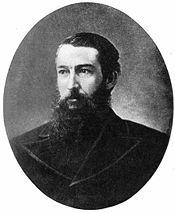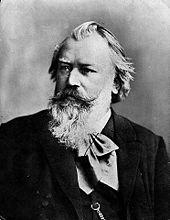Planning worship?
Check out our sister site, ZeteoSearch.org,
for 20+ additional resources related to your search.
- |
User Links
Person Results
‹ Return to hymnal




Export as CSV
Nicholas Heins
1839 - 1910 Hymnal Number: 178 Composer of "BRECON" in Hymns for the Living Age Born: 1839, London, England.
Died: 1910, Hereford, England.
Nicholas Heins
J. H. Cornell
1828 - 1894 Person Name: John H. Cornell Hymnal Number: 180 Composer of "BETHEL" in Hymns for the Living Age An organist for St. Paul’s Chapel, Trinity Church, Cornell compiled the Congregational Tune Book in 1872.
--www.hymntime.com/tch/
J. H. Cornell
U. C. Burnap

1834 - 1900 Person Name: Uzziah C. Burnap Hymnal Number: 55 Composer of "HINCHMAN" in Hymns for the Living Age Burnap ran a dry goods business in Brooklyn, though he graduated from the University of Paris with a music degree, and for 37 years played the organ at the Reformed Church in Brooklyn Heights. He was a prolific composer, and helped edit the following:
Hymns of the Church, 1869
Hymns of Prayer and Praise, 1871
Hymns and Songs of Praise, 1874
--The Cyber Hymnal™
There is uncertainty about his middle name. Reynolds and the Library of Congress say it was Christopher. A contemporary obituary relied on by "The Cyber Hymnal™" says it was Cicero. It appears that there was another Uzziah C[icero] Burnap who lived (per LOC) 1794-1854.
U. C. Burnap
Sidney Lanier

1842 - 1881 Person Name: Sidney Lanier, (1842-1881) Hymnal Number: 146 Author of "Into the woods my Master went" in Hymns for the Living Age Lanier, Sidney, born at Macon, Ga., Feb. 3, 1842, and educated at Oglethorpe College, Ga., where he graduated in 1860. He was one of the earliest volunteers in the Confederate Army, and after the war he devoted himself to music and literature. He died at Lynn, N.C., Sep. 7, 1881. His Poems were collected and pub. by his widow (New York), in 1884. Two of his hymns are:—
1. Thou God, Whose high eternal love. [Holy Matrimony.] This is dated "Macon, Sep. 1865," and is found in his Poems, p. 233.
2. Into the woods my Master went. This is a poem rather than a hymn, and might pass for a carol. It is given as No. 745 in the Methodist Hymnal, N.Y., 1905.
In early life Lanier was a member of the Presbyterian Church, but gradually lost sympathy with organised Christianity. [Rev. L. F. Benson, D.D.]
--John Julian, Dictionary of Hymnology, New Supplement (1907)
============
See also in:
Wikipedia
Sidney Lanier
Nahum Tate
1652 - 1715 Hymnal Number: 116 Author of "While shepherds watched their flocks by night" in Hymns for the Living Age Nahum Tate was born in Dublin and graduated from Trinity College, Dublin, B.A. 1672. He lacked great talent but wrote much for the stage, adapting other men's work, really successful only in a version of King Lear. Although he collaborated with Dryden on several occasions, he was never fully in step with the intellectual life of his times, and spent most of his life in a futile pursuit of popular favor. Nonetheless, he was appointed poet laureate in 1692 and royal historiographer in 1702. He is now known only for the New Version of the Psalms of David, 1696, which he produced in collaboration with Nicholas Brady. Poverty stricken throughout much of his life, he died in the Mint at Southwark, where he had taken refuge from his creditors, on August 12, 1715.
--The Hymnal 1940 Companion
See also in:
Hymn Writers of the Church
Nahum Tate
Melancthon Woolsey Stryker

1851 - 1929 Person Name: M. Woolsey Stryker Hymnal Number: 434 Author of "Almighty Lord, with one accord" in Hymns for the Living Age Stryker, Melancthon Woolsey, D.D., son of the Rev. Isaac Pierson Stryker, was born at Vernon, New York, Jan. 7, 1851, and educated at Hamilton College (1872) and Auburn Theological Seminary (1876). In 1876 he entered the Presbyterian ministry as Pastor at Auburn, New York. In 1878 he removed to Ithaca, N. Y.; in 1883 to Holyoke, Massachusetts, and in 1885 to Chicago, Illinois. He received his degree of D.D. from Hamilton College in 1889. He has edited Christian Chorals, 1885 ; New Alleluia, 1880-86; and Church Song, 1889. He was also joint editor with H. P. Main of The Church Praise Book, 1882. He has also published Hymns and Verses, 1883, and Song of Miriam, and Other Hymns and Verses,
1888. To two of these works which have been designed for daily use in divine worship Dr. Stryker contributed the following original hymns:—
i. The Church Praise Book, 1882.
1. Burst forth, 0 Bridegroom, from Thy chamber bright. Second Advent Desired. (1880.)
2. Death cannot make my soul afraid. Death Contemplated. (1881.)
3. Eternal day hath dawned. Heaven. (1881.)
4. Mighty God, Thy Church recover. Missions. (1881.)
5. King again, ye starry chime. Christmas. (1881.)
6. Sing, Israel, for the Lord your strength. Passing the Red Sea. (1878.)
7. The tribes of faith from all the earth. Heaven. (1881.)
8. Thy Kingdom come, 0 blessed Son of God. Second Advent Desired, (1880.) Re-written in Church Song, 1889, as "Thy Kingdom come, 0 everlasting Lord."
9. When the everlasting Lord. Morning. (1880.)
ii. Church Song, 1889.
10. Arouse Thy Church, Almighty God. Missions. (1887.)
11. Father, as here we bow. Holy Trinity. (1886.)
12. Four hundred years their course have sped. American National Hymn. (1888.)
13. God of our Fathers, our God to-day. National Hymn. (1889.)
14. Lo, where that spotless Lamb for sin provided. Passiontide. (1884.)
15. My Maker, at Thy holy throne. Holy Baptism. (1888.)
16. O God, Thy judgments give the King, Thy Son. Missions. (1883.)
17. O Thou, Eternal, Changeless, Infinite. Praise to God. (1882.)
18. 0 Thou, Omnipresent. Omnipresence of the Father. (1885.)
19. O Thou Shepherd of Thine Israel, hear us. Ps. lxxz. (1883.)
20. Our God, and our Redeemer. Opening of a Place of Worship. (1883.)
21. Robbed, bruised, and dying, once I lay. The Good Samaritan. (1886.)
22. Sing, every boy and maiden. Praise to God. (1885.)
23. Thou, Lord of my life, by the words Thou hast said. Lent. (1887.)
24. Thy grace is all of grace. Divine Grace. (1886.)
25. To Thee, our God, these babes we bring. Holy Baptism. (1886.)
26. Tranquilly, slowly, solemnly, lowly. Burial. (1884.)
27. We close Thy blessed Word. Sunday Evening. (1S87.)
28. While all the night-stars fade and wane. Easter. (1884.)
In addition to these original hymns Dr. Stryker has several translations from the German which are in common use. One of his hymns, No. 513, "Now I lay me down to sleep" (Child's Evening hymn), in Church Song, 1889 (dated 1884), begins with a stanza by another hand. In the same work there are also several of his tunes. Dr. Stryker's hymns are massive and rugged, full of dogmatism and fire, but they lack unity and purity of rhythm. In some instances words stand for thoughts, and exclamations for ideas. Nevertheless a few will live.
-- John Julian, Dictionary of Hymnology (1907)
=================
Stryker, M. W., pp. 1098, i.; 1525, ii. 7; 1615, iv. In 1892, Dr. Stryker became Presi¬dent of Hamilton College and also received the LL.D. from Lafayette College. His College Hymnal, 1897, 1904, contains 28 of his hymns, the majority of which date 1890-1894. Of these "From doubt and all its sullen pain" (Faith), written in 1890, is found in other collections. Dr. Stryker d. in 1905. His Dies Irae was published 1892, and his Latermath (verse) 1896.
--John Julian, Dictionary of Hymnology, New Supplement (1907)
Melancthon Woolsey Stryker
William Richard Waghorne
1881 - 1942 Person Name: W. R. Waghorne Hymnal Number: 467 Composer of "GREYSTONE" in Hymns for the Living Age
William Richard Waghorne
John Edgar Park
1879 - 1956 Person Name: J. Edgar Park Hymnal Number: 132 Author of "We would see Jesus, lo, his star is shining" in Hymns for the Living Age J. Edgar Park, until his retirement in 1944, was President of Wheaton College, Massachusetts. He was born in Belfast, Ireland, March 7, 1879 and had his theological studies at New College, Edinburgh, The Royal University, Dublin, and Princeton Theological Seminary. His principal pastorate was in the Second Church of Newton, Congregational, West Newton, Massachusetts, which he served 1926 to 1944, going from there to the Presidency of Wheaton. He is the author of many books, including one of the Lyman Beecher Lectures at Yale. He wrote one of the "Eleven Ecumenical Hymns," entitled "O Christ whose love has sought us out," which were obtained by the Hymn Society for use at the Evanston Assembly (1954) of the World Council of Churches.
--Fourteen New Rural Hymns. Used by permission.
John Edgar Park
John Bishop
1665 - 1737 Person Name: John Bishop, 1665-1737 Hymnal Number: 71 Composer of "JAM LUCIS" in Hymns for the Living Age John Bishop was born in 1665 in Winchester, Hampshire, England He served as lay vicar at King’s College, Cambridge (1687), as the organist (1695-1737) and lay clerk (1697) at Winchester College, and also as tge organist at Winchester Cathedral (1729-37). He died about December 19, 1737 in Winchester. His works include:
A New Set of Psalm Tunes, 1710
A New Set of Psalm Tunes, 1722
A Supplement to the New Psalm-Book, 1725
A New Set of Psalm Tunes, 1730
NN, Hymnary. Source: http://www.hymntime.com/tch/bio/b/i/s/bishop_j.htm
John Bishop
Johannes Brahms

1833 - 1897 Person Name: Johannes Brahms, 1833-1897 Hymnal Number: 519 Arranger of "MISERERE NOBIS" in Hymns for the Living Age Johannes Brahms (German: [joˈhanəs ˈbʁaːms]; 7 May 1833 – 3 April 1897) was a German composer and pianist. Born in Hamburg into a Lutheran family, Brahms spent much of his professional life in Vienna, Austria. In his lifetime, Brahms's popularity and influence were considerable. He is considered one of the greatest composers in history.
See also in:
Wikipedia
Johannes Brahms


 My Starred Hymns
My Starred Hymns


